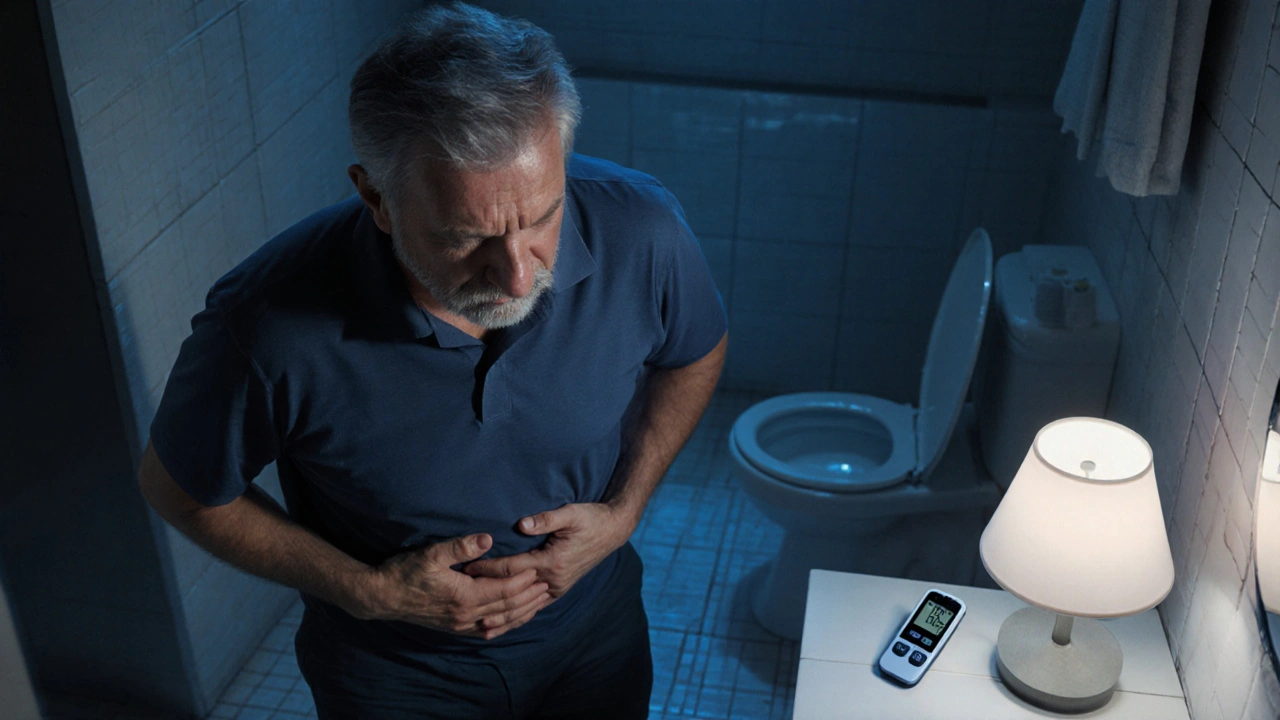Learn how diabetes can trigger overactive bladder, spot key symptoms, and apply lifestyle, exercise, and medication steps to regain bladder control.
MoreDiabetes – What You Need to Know
Diabetes is a condition where your body struggles to keep blood sugar at the right level. It can happen because the pancreas doesn’t make enough insulin or because the cells don’t use insulin well. High blood sugar over time can damage eyes, kidneys, nerves, and the heart. Knowing the basics helps you catch problems early and stay in control.
Understanding Diabetes and Its Types
There are two main types. Type 1 usually starts in childhood. The body stops making insulin, so you need daily injections or a pump. Type 2 is more common in adults and is often linked to weight, diet, and activity level. Your body still makes insulin, but it doesn’t work properly, so blood sugar stays high.
There’s also gestational diabetes, which appears during pregnancy and usually goes away after birth. Even though it’s temporary, it raises the risk of developing type 2 later, so follow‑up testing is important.
Practical Tips for Daily Blood Sugar Control
First, check your blood sugar regularly. Knowing your numbers tells you if food, meds, or stress are affecting you. Aim for the target range your doctor gave you – most people aim for 80‑130 mg/dL before meals.
Second, watch what you eat. Choose whole foods, lots of veggies, lean protein, and healthy fats. Cut back on sugary drinks, white bread, and big portions of starchy carbs. A simple rule: fill half your plate with non‑starchy veggies, a quarter with protein, and a quarter with complex carbs.
Third, stay active. Even a brisk 30‑minute walk can lower blood sugar for hours. If you’re new to exercise, start slow and add a few minutes each week. Consistency beats intensity for most people with diabetes.
Fourth, keep your medication routine on point. If you use insulin, learn how to match doses to carbs and activity. For oral meds, take them with food if the label says so, and never skip a dose without talking to your doctor.
Finally, manage stress and sleep. Both can push blood sugar up. Try relaxation tricks like deep breathing, short meditation, or a hobby you enjoy. Aim for 7‑9 hours of sleep each night.
PharmaShop’s Diabetes tag brings together articles that explain how common meds work, what side effects to watch for, and how to shop safely for prescriptions online. Whether you’re looking for the latest insulin pricing, tips on generic options, or advice on handling low blood sugar, the tag page gives you quick access to practical, vetted information.
Remember, diabetes is a lifelong journey, but with the right tools and habits you can keep complications at bay. Use the resources on PharmaShop to stay updated, ask questions, and make informed choices about your health.
Explore whether lurasidone, a second‑generation antipsychotic, affects blood‑sugar control. Learn the science, clinical evidence, risk comparison and practical tips for patients and clinicians.
More

